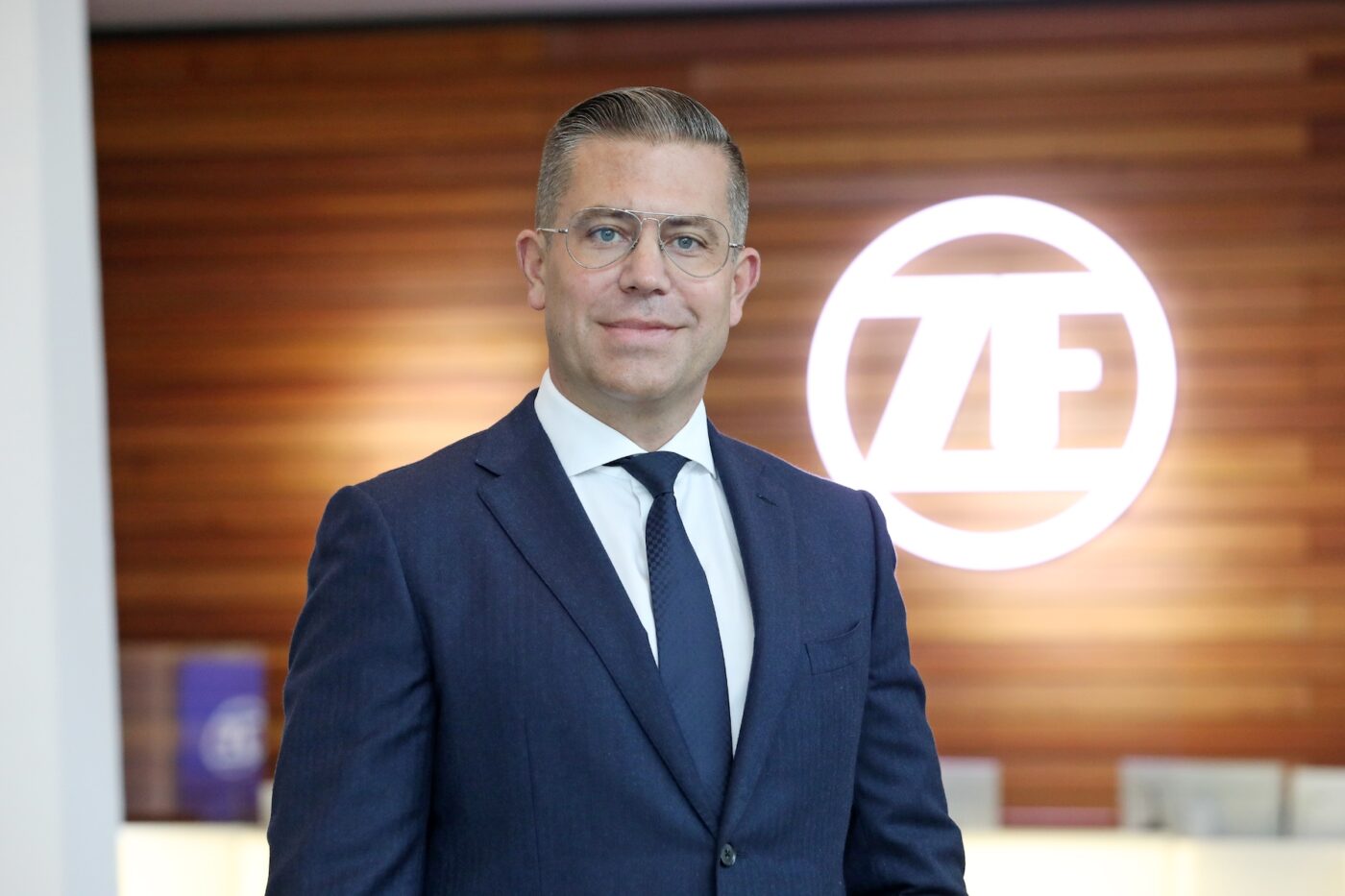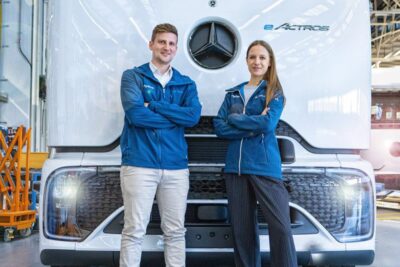ZF hires Mathias Miedreich as new Board Member for Electric Drive Systems
The Friedrichshafen-based company had already been searching for a new head of the division since July, when CEO Stephan von Schuckmann announced his resignation for personal reasons. CEO Holger Klein then took over temporary management of the division, which is ZF’s strongest division in terms of sales.
The divisional name ‘Electrified Drive Technologies’ is somewhat misleading, as the division also includes conventional drive systems: The division encompasses all of ZF’s passenger car drives, ranging from combustion engines to plug-in hybrids and battery-electric drives. ZF does not reveal which of the three drive types contributed how much to the division’s sales of 11.5 billion euros. However, a press spokesperson told elective: “As the BEV business is the “youngest child” and is in the process of ramping up, transmissions for combustion engines and PHEVs account for a larger share.”
However, ZF has already admitted to problems earning money with electric drives: CEO Klein confirmed to the German business paper manager magazin in the summer that the technology for electric drives is ‘predominantly not yet profitable’. According to the report, the division is about to undergo a reorganisation: “Workflows, processes and structures will be reviewed and improved with a particular focus,” Klein announced in manager magazin in the summer and therefore also called for “openness to cooperation and strong partnerships.”
A big task for the new man on board. Mathias Miedreich is 49 years old, has a degree in business administration and brings management experience from the automotive suppliers Continental and Faurecia. Most recently, he spent three years as CEO of Umicore, a global specialist in materials technology and the circular economy based in the Belgian metropolis of Brussels.
The Chairman of the Supervisory Board, Dr Heinrich Hiesinger, commented on the appointment: “With Mathias Miedreich, we are specifically strengthening our Board of Management team, which is doing an outstanding job in these times to realign ZF and make it more competitive. As the future head of the Electrified Powertrain Technology Division, he has a special responsibility in view of the challenges that ZF is currently facing in the transition to electric mobility. Mathias Miedreich is familiar with our customers, global value chains and expectations regarding sustainable mobility. We wish him every success in this role.”
As a representative of the Zeppelin Foundation, which holds 93.8 per cent of the shares in ZF, its Chairman Andreas Brand says: “With Mathias Miedreich as the new board member, we’re relying on his expertise in the automotive industry and in the field of electric mobility. We’re convinced that he will make a valuable contribution to ZF. With his appointment, we’re supporting the strategic goals of adapting this division to market requirements and technological developments.”
Miedreich is “moving from one crisis-hit company to the next”, as the German Südkurier newspaper writes. Umicore’s share price has fallen by a good 50 per cent within a year because its business with raw materials for the production of rechargeable batteries is struggling. This is due to the market slump in electric vehicles. According to Südkurier, Miedreich’s balance sheet at Umicore is mixed. For example, one of his prestigious projects, the joint venture for cathode materials for batteries with Volkswagen called Ionway, is in trouble.
ZF is also in crisis: the group has thoroughly overstretched itself with takeovers, is burdened by a mountain of debt totalling ten billion euros and has to pay over half a billion euros in interest every year. In the summer, there was already news that ZF will cut 11,000 to 14,000 jobs in Germany by 2028. This week it was also announced that the construction of the planned semiconductor factory of the US company Wolfspeed together with ZF in Saarland has been put on hold. This project was also intended to drive forward ZF’s transformation towards electromobility, as electric vehicles require a particularly large number of semiconductors.





0 Comments